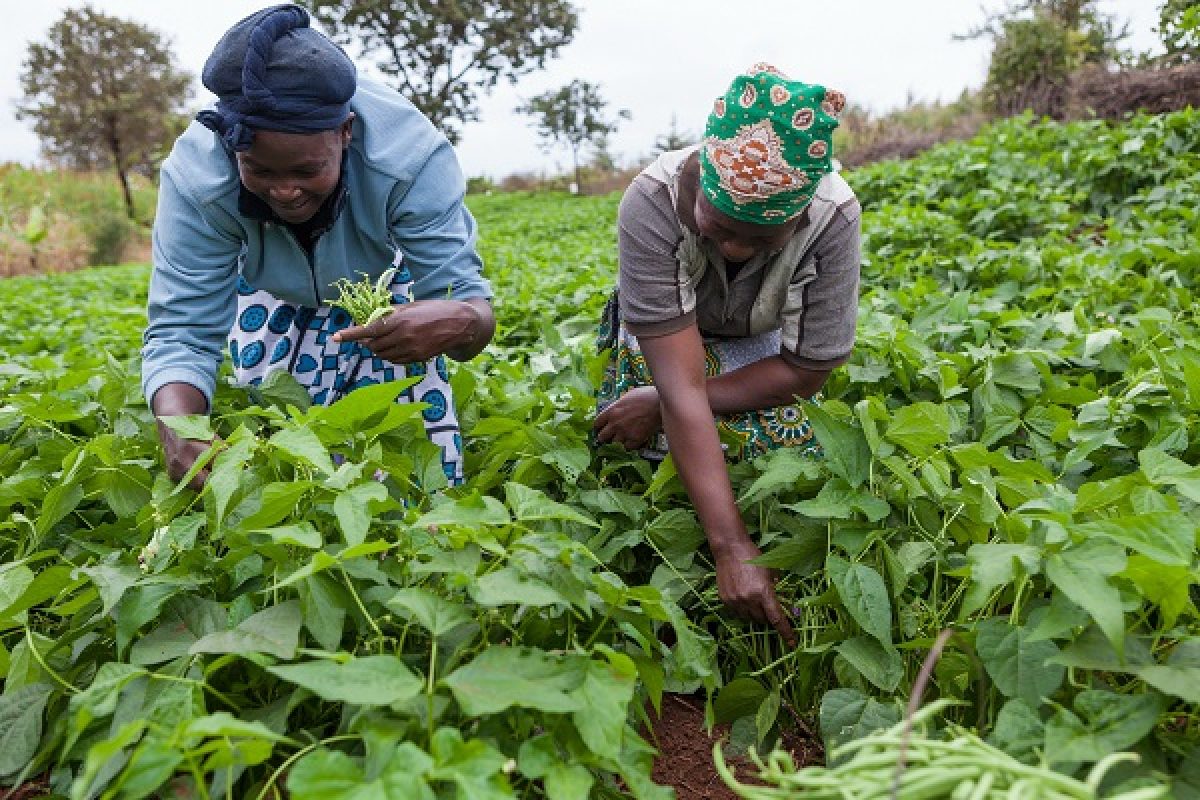In a country where over 70% of the population depends on farming, the effects of climate change are particularly harsh on women, who are both primary food producers and key economic actors in the agricultural sector.
The Strain of Unpredictable Weather
Climate change in Rwanda manifests through erratic rainfall patterns, longer dry spells, and unpredictable weather. Women farmers, especially those who engage in small-scale farming and agribusinesses, are struggling to adapt. Their stories reflect the broader national challenge of balancing food security, income generation, and climate resilience.
One such story is that of Grace Uwamahoro, a smallholder farmer in the northern part of Rwanda. “The seasons are no longer predictable,” she says, her hands stained with soil as she gathers her harvest. “We used to plant beans in October, but now we don’t know when to plant them because the rains come late, or sometimes they don’t come at all.”
The disruption of planting seasons, along with unpredictable rainfall, has led to reduced crop yields, threatening food security and income for many women in rural areas.
Economic Impact and Livelihoods
For many women, farming is not only a source of food but also a means of economic empowerment. Through agribusiness, women in Rwanda are able to provide for their families and access education and healthcare. However, with climate change-induced crop failures and diminished yields, this economic power is being undermined.
Diane Nyirinkwaya, who runs a small vegetable farming business in the Eastern Province, explains the economic strain: “Before, I could sell my produce in local markets and make enough to send my children to school. But last year, my harvest was only half of what I expected due to the drought. I couldn’t even cover my basic expenses.”
This economic disruption is compounded by the rising costs of farming inputs like seeds, fertilizers, and irrigation systems, which many women cannot afford without external support.
Adaptive Strategies and Resilience
Despite the challenges, women in Rwanda are showing remarkable resilience, adopting various strategies to cope with the changing climate. Some women are diversifying their crops to include drought-resistant varieties, while others are investing in rainwater harvesting techniques to ensure water availability during dry spells.
Margaret Uwase, a farmer from the Western Province, describes how she has adapted: “I started planting more cassava and sweet potatoes because they require less water. I also built a rainwater harvesting system to store water for irrigation when the rains don’t come on time.”
These adaptive strategies are critical in helping women sustain their livelihoods, but they also require access to training, resources, and support networks that many women lack.
The Role of Technology and Training
Technology and innovation have the potential to help women overcome some of the obstacles posed by climate change. In Rwanda, initiatives like the Agri-Tech Hub and Climate Smart Agriculture programs are equipping women with the knowledge and tools to increase their resilience to climate shocks. Training in climate-resilient farming techniques, access to early warning systems for extreme weather, and mobile-based agricultural advisory services are all making a difference.
Clarisse Umutoni, a member of a women’s cooperative in the Southern Province, credits technology with helping her adjust to changing weather patterns: “We now receive weather forecasts on our phones. This helps us decide when to plant or when to protect our crops from heavy rains. We also use better seeds now, which have helped us cope with the dryness.”
Although technology is a powerful tool, its widespread adoption among rural women still faces barriers such as limited access to smartphones, internet connectivity, and financial resources.
Gendered Impacts and Need for Policy Support
While climate change affects everyone, its impact on women is often more pronounced due to entrenched gender inequalities. Women are more likely to have less access to land, capital, and decision-making power, which makes it harder for them to adapt to climate challenges. Furthermore, women are often excluded from climate policy dialogues, even though they are key players in agricultural production.
To address these gendered impacts, Rwanda’s National Adaptation Programme of Action (NAPA) has begun to incorporate gender considerations into its climate adaptation strategies. Women’s empowerment and their active involvement in decision-making are now recognized as essential components of climate resilience.
Alice Mukamisha, a policy advocate with a local women’s rights organization, stresses the importance of gender-responsive climate policies: “Women must be part of the solution. We need more representation in the policymaking process and greater access to resources to help us adapt to climate change.”
The testimonies of women farmers in Rwanda provide a poignant reminder of the tangible impact of climate change on those who depend on agriculture for their survival. While the challenges are immense, these women’s stories also highlight the resilience, adaptability, and innovative spirit that are driving change in the face of adversity.
With continued support, greater gender inclusion in climate policies, and access to climate-smart technologies, women in Rwanda can play a leading role in building a climate-resilient agricultural sector for the future.
The road ahead is difficult, but the voices of these women are a powerful testament to the strength and determination needed to confront the climate crisis head-on.
BY TUYISHIME Eric






